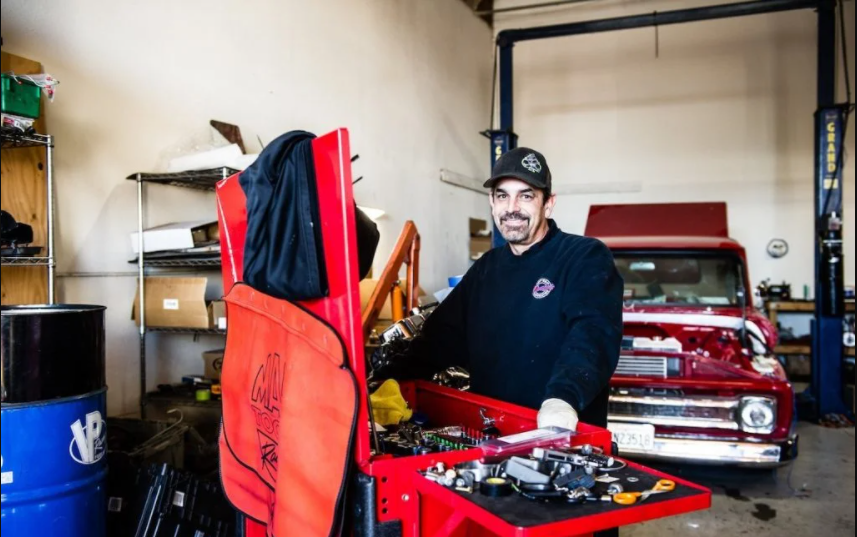After some time of getting the “feel” of how your car normally runs, you’ll certainly know when there’s something to worry about. And with this, one thing you’ll easily recognize is if there’s a problem when accelerating. Car accelerating may just be as easy as stepping on the gas pedal, but there’s a lot going on under it.
When your car jerks while accelerating, there may be a lot of underlying causes behind it. If you sense that the jerking is there but don’t know what causes it, then looking for an Rancho auto care will definitely help you. But to give you an insight of what the problem might be, here are some of the possible reasons.

When to Not Worry
Well, this really doesn’t need to be on this list but for the sake of new car owners, this will definitely help. The only time to not worry when your car jerks while accelerating is when you’re driving a manual and haven’t got the right shifting. But hey, THAT’S TOTALLY OKAY especially if you’re a new driver of a manual car, or maybe you’re driving a different manual vehicle. We’ve all been there, right?
Contaminated Fuel Injectors
Fuel injector contaminants may come from debris. Though this might be less common nowadays as most gas stations now have consistent high-quality gas, this is still something to look out for.
Dirty Air Filters
As your car’s air filters are the first line of defense against pollutants, they still accumulate dirt over time such as dirt, dust, and leaves. Replacing it to a new one will definitely do the trick.
Blocked Catalytic Converters
Your car’s catalytic converters wear down with regular use and may suffer from blockage. These can either be cleaned, repaired, or replaced. After which, you’ll feel a smoother acceleration than usual.
Worn Out Spark Plugs
Spark plugs provide the spark which helps start the engine. Spark plugs also wear down over regular use and have to be replaced once they’re worn out or failing.
Damaged Gas Lines
Gas lines are where gas travels from the gas tank to your engine. In worst cases, a damaged gas line may lead to an engine fire. Always make it a habit to check your gas lines from time to time.
Damaged Acceleration Cables
The acceleration cables are what connects your gas pedal to your to the engine throttle plate. Damaged acceleration cables will certainly lessen the power to help your car accelerate.
Defective Carburetors
Before fuel and air enter your engine, your car’s carburetors regulate how much air and fuel should be mixed. Not only are carburetors essential to your car’s acceleration, it’s also essential for your car’s health in general.
Damaged Cylinders
Cylinder damage may be caused by excessive carbon deposits on top of the piston. Cylinders are one of the major components of your car’s engine and may lead to major engine damage if not tended to.
Moisture on the Distributor Cap
Built-up moisture on the distributor cap may lead to engine misfires which causes your car to jerk while accelerating. This may be one of the easiest to avoid on this list since this can be acquired, for example, when parking your car under a snowy/very cold temperature.
Faulty Mass Airflow Sensor
The mass airflow sensor is responsible for communicating with your car’s computer in regards to how much mixture of air and fuel should be done by the fuel injectors. A faulty MAS might result in a “miscommunication” with your car’s computer.
Bad Fuel Pump or Filter
A failing fuel pump would render a fuel supply issue to the engine. A bad fuel pump will struggle to meet the fuel demand of the engine which causes your acceleration to jerk.
Faulty Transmission Control Module
For automatics, whenever you change gear and you feel that your car jerks while accelerating, that may probably be because of the transmission control module. It may be something uncommon, but it doesn’t hurt to check.
Mechanic vs DIY
Unless you’re a mechanic yourself, we strongly suggest having this problem be done by DIY. If you’re unsure of what is causing this problem, it’s better to search for an auto repair Rancho Cordova. Never risk your safety with lower-costing problem solutions.
Finding the right Auto Care specialist for your car repairs and needs is important. Be sure to read reviews and understand the issues before hiring a mechanic versus going the DIY route. However, hiring a mechanic can save you a lot of time and make sure that the repair is done properly preventing you from having further repair costs or risk of an auto accident.




